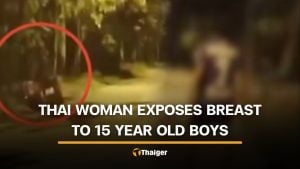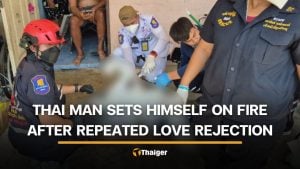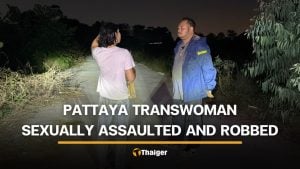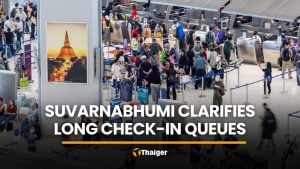Tension in Ethiopia as TPLF fighters advance

When Adam* returned to his home after a haircut on the morning of Saturday, November 6, he saw his parents and sister being forced into a police van. With them were two other families living in the compound – all of them of Tigrayan origin. Before leaving, Adam’s mother was able to lock the house, he said, taking with her the only key to their home.
“My father has a heart problem; he has a disease, and his medicine is in the house. He has to take the pill daily,” said Adam, unable to hide his concern. “We are civilians (…). I don’t know what they are trying to do to us.” His father had just been dismissed from his job at a government TV station. His mother is a housewife. He has not yet been allowed to visit them them in detention.
Arbitrary arrests
Since the beginning of the conflict in Tigray in November 2020, home searches and arbitrary arrests of residents of Tigrayan descent have become common in the Ethiopian capital. With the declaration of the state of emergency on Tuesday, the situation seems to be getting worse.
“They gave the power to the policemen to do anything, harass you and arrest you without any reason, and they can go and search for anything in your house,” said Tigist*, a young woman who fled Tigray months ago. Policemen recently came to her apartment in Addis Ababa to ask for her ID, but she was at work.
Tigist was not born in Tigray, although her family is from there, which makes it easier for her to hide her ethnicity. Her friends, however, live in constant fear. “They are very worried, they don’t want to stay out at nighttime,” she explained. Several of her friends were detained but then released. Another one was arrested on the street after police forces asked for his ID. Tigist said he is still in detention.
A police spokesperson insisted that those arrested were directly or indirectly supporting the Tigray People’s Liberation Front (TPLF), which the government labeled a terrorist organization last May. While it is still difficult to assess the scale of these arrests, human rights organizations are alarmed.
“We are very worried by the sweeping powers accorded to the security forces through the state of emergency and the risk that it gives legitimacy and legalizes the trends and practices we’ve been seeing in Addis Ababa almost since the beginning of the conflict,” Leatitia Bader, Horn of Africa Director for Human Rights Watch, told DW. “It’s a very alarming situation for a community which has in many ways been living in a lot of fear for the last year.”
Addis Ababa at risk?
The situation comes as Tigrayan forces, partly led by the TPLF, said they were advancing south towards Addis Ababa and east towards the highway linking the capital to Djibouti. The organization announced they had joined forces with another group, the Oromo Liberation Army (OLA), who said it could be a matter of weeks before they reach the capital
“Abiy’s ship is sinking and sinking fast. The reason why they are rounding up innocent Tigrayans and Oromos in other parts of Ethiopia is most likely to use them as chips of bargain,” Getachew Reda, a leader of the TPLF said in a Twitter post on Saturday evening.
In light of the uncertain future, several embassies have advised their citizens to leave the country while commercial flights are still running. The US State Department ordered the evacuation of all non-essential diplomatic staff.
But the Ethiopian government said western actors, in particular media outlets, were over-reacting, and dismissed rebel claims as propaganda. At the same time, citizens were asked to mobilize, register their weapons and be ready to fight for their country. “For us, Ethiopians, dying for our sovereignty, unity and identity, is an honor,” read a government statement on Saturday.
Analysts see this apparent contradiction as a way for the government to prepare for armed struggle while hoping to limit civil unrest.
“We could soon be in a scenario where the Tigray fighters are able to choke the Djibouti trade route, and you don’t want panic buying and hoarding in advance of that,” explained Willian Davison, senior Ethiopia analyst for the International Crisis Group (ICG). “So we can understand government efforts to try and calm things down, even if it runs against simultaneous official calls for all-out mobilization.”
Residents have mixed feelings about the looming threat to the capital. One taxi driver said he wasn’t worried but said in any case, most residents are living hand-to-mouth and can’t afford to stock up on food and other essential items.
Government support base on display
There’s also widespread belief and hope that Ethiopian Prime Minister Abiy Ahmed can find a way to defeat Tigrayan fighters. This was borne out on Sunday morning, when thousands of demonstrators flocked to a pro-government rally on Meskel Square, the city’s main gathering place.
Some of those protesting were members of the major opposition Ezema party. “We went out there to say that despite our different political opinions, when it comes to defending the sovereignty and unity of the country, we stand together,” Natnael Aberra, head of public relations for the Ezema party, told DW. “I believe that what the TPLF and its allies are doing is posing a threat to national sovereignty and unity of the country, as well as to the security of our citizens. We cannot sit back and see their objectives unfold.”
Dancing to chants celebrating Ethiopian soldiers, demonstrators waved Ethiopian flags and carried signs reading “Stop fake news Ethiopia,” aimed at Western media organizations. In the midst of animated victory speeches, one voice did call for appeasement. Iconic Ethiopian singer Tariku surprised the crowd as he made his way to the main stage after being asked to perform “Dishta Gena,” one of this year’s most popular hits.
“Enough! Our ears are bleeding (…) Why are we going in front if we are going to die?” he yelled at the surprised crowd. “Enough with the cannons!”
Last chance diplomatic efforts
Though a cease-fire still appears only a remote possibility, there seems to be a glimmer of hope emerging on the diplomatic front. The UN’s Martin Griffith and African Union High Representative to the Horn of Africa Olosegun Obasanjo reportedly landed in Mekele on Sunday. According to Reuters, TPLF’s Getachew Reda confirmed they were holding talks.
This as US special envoy Jeffrey Feltman spent two days in Addis Ababa, an effort deemed by many as the last chance for a negotiated settlement. One diplomatic source said Prime Minister Abiy Ahmed agreed to US-led mediation efforts, but others indicated the meetings hadn’t gone well.
In the absence of a negotiated cease-fire, the situation still appears grim. TPLF leader Getachew Reda denied that their arrival to Addis Ababa would cause a bloodbath. He indicated the TPLF and OLA would only want to overthrow the government – but how this scenario would play out without confrontation remains unclear.
*Names changed
SOURCE: DW News
Latest Thailand News
Follow The Thaiger on Google News:


























